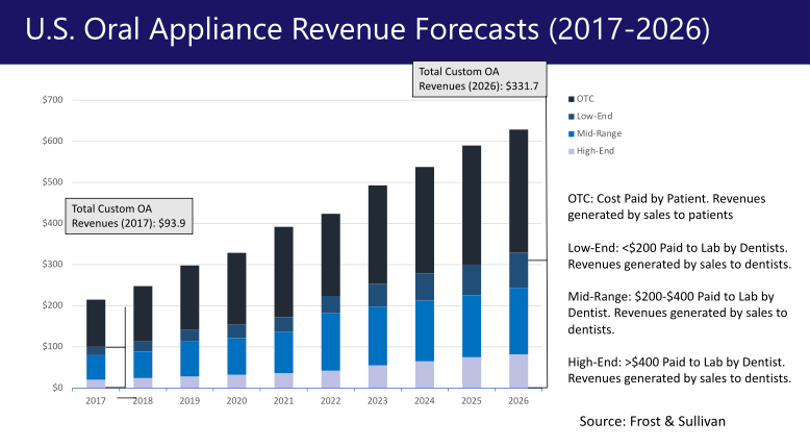
PATIENTS ARE ICEBERGS – LET’S EXPLORE
 Patients are icebergs. Successful dentists and their teams are experts at exploring beneath the surface. I’m not talking about instruments here. I’m talking about asking questions that encourage patients to share useful information which can uncover more opportunities.
Patients are icebergs. Successful dentists and their teams are experts at exploring beneath the surface. I’m not talking about instruments here. I’m talking about asking questions that encourage patients to share useful information which can uncover more opportunities.
Asking targeted exploratory questions works with your team, too. That hygienist might be tired of scaling and root planing. Have you asked her to rate her career satisfaction or where she sees herself in three years? If we simply accept what’s above the surface, we’re probably shortchanging all parties.
After you’ve thoroughly related to you patient, it’s time to explore. People love to talk about themselves. Ask questions. This is what you think you’re doing when you ask, “Still sunny out there?” or “Anything changed since the last time you were here?” Those questions are noise pollution.
So, what kinds of questions can you ask?
WHAT’S NEW & NOTEWORTHY?
“Hey, Michael, how’s it going?”
“Oh, you know, livin’ the dream.”
There’s 10 seconds you’ll never get back. Gone. This exchange didn’t build rapport, nor did it lend any insight to why Michael is in your chair or what’s caused him to stop wearing his device.
Remix that question and everything changes. “Michael, what’s new and noteworthy since the last time we met?”
“Well, my daughter had my grandbaby. They finally had to induce her ten days after the due date. And, Doc, I was wearing that sleep thing, but it felt really tight on my front teeth. Plus, Sharon said I’m still snoring, so I just stopped wearing it.”
THIN LINE BETWEEN LOVE AND HATE
Asking someone what they like most and least about a subject can help you decode what matters to them. This is especially useful to expose how a potential new assistant will react to negativity.
When interviewing new assistant candidates, ask them what they loved about the last office they worked at. Allow them to answer. Then ask what they hated. If they tell you they loved working just three days a week and denounce their former colleagues, keep that Indeed ad running for another week.
The next time you meet with a potential referral source, ask them to contrast what they liked about dentists they’ve worked with and what they wish had been different. “They always provided great communication about successfully treated OAT patients, but they kept mum about the ones whose AHI wasn’t normalized.” From this, you can extrapolate that the physician values transparent communication and is concerned about long-term patient care.
THINGS THAT MAKE YOU GO “HMMM”
We tend to fall into rote patterns in our conversations. Asking questions that make people think can help you engage them more fully. You can have some real fun with this and be memorable to your patients.
I used to co-host a podcast. No one ever approaches me about topics we covered during the episodes. However, years later, people still joke with me about some of the questions I asked the guests.
 “Do you like tapioca?”
“Do you like tapioca?”
“What’s one thing you’ve gifted to several people?”
“What’s the last amazing book you read?”
“When was the last time you got into a physical altercation?”
“What’s a piece of conventional wisdom most people hold that you disagree with?”
“Do you believe in ghosts?”
A MAGIC WAND IN A PERFECT WORLD
“Magic wand” questions encourage others to think big, beyond their real and imagined limits. Ask a doctor, “If you had a magic wand, what would your dream practice look like? How many days would you work? What would be your ideal patient volume? Income? Team size?”
Their responses can open doors to what makes them tick, their self-image, and their buying motives. For example, “Doctor, in a perfect world, what would your working relationship with a dentist look like?”
She might respond, “It’s really important they communicate with me at every step. I need to know that the dentist will file the insurance and won’t charge an obscene fee. I need to be confident that the patient gets the treatment they need so they don’t leave me a nasty Google review. That’s not going to work for me.”
From this response, we can deduce that communication is important. We can also conclude that patient wellness is important, along with her practice’s online reputation.

To further your exploratory prowess, order your copy of my new book Transform Dental Sleep: The Step-by-Step Guide to Doubling Your Sleep Patients, Increasing Physician Referrals, Simplifying Processes, and Improving Your Life. You’ll get actionable tips developed to help you do exactly what the book’s title says. Order your copy today.


Doctor, What Are You Ashamed Of?

THE 100 CLUB
THE 100 CLUB In 2015, Frost and Sullivan, a respected…
